Doug Hoekstra - Interview
by John Clarkson
published: 12 / 10 / 2003
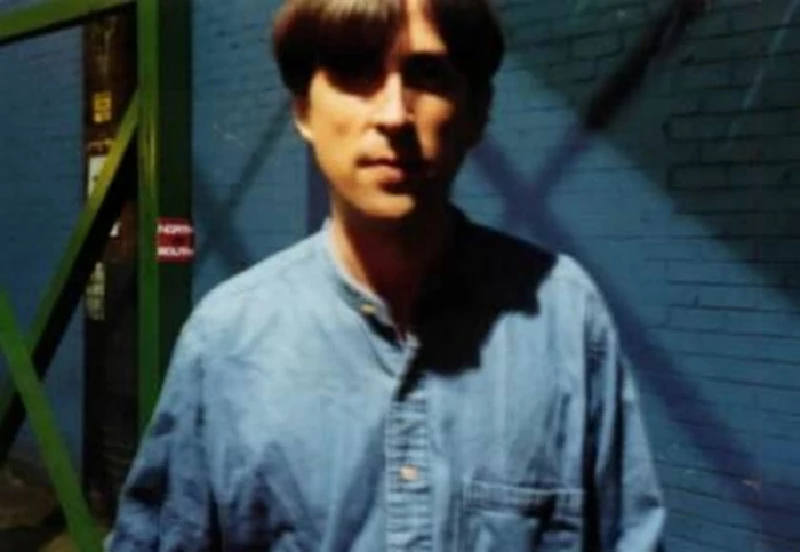
intro
Nashville musician Doug Hoekstra's new album 'Waiting' represents a change of direction, being recorded almost entirely at home while he awaited the birth of his first child. He chats to John Clarkson about its recording
‘Waiting’ is the sixth solo album of the much acclaimed Nashville-based musician and songwriter, Doug Hoekstra. Perhaps predictably for a singer-songwriter coming from the Tennessee capital, Hoekstra has strong roots in country. Hoekstra's other influences, however, include blues, avant-garde, jazz, folk, gospel and pop, and his albums are fluent, eclectic affairs, which flit effortlessly, sometimes several times in the same song, from one genre to another. The subject matter of ‘Waiting’ , like its five predecessors, ‘When the Tubes Begin to Glow (1994)’, ‘Rickety Stairs’ (1996), ‘Make Me Believe’ (1999), ‘Around the Margins’ and “The Past is Never Past’ (both 2001), is typically broad in theme and scope. ’Theresa’ examines the plight of a Brazilian street child, while ‘Dark Side of a Pearl’, which is written from the slant of a baffled close friend, tells of the rapidly dissolving, violent relationship of a once perfect couple. ‘Screwball Comedy’, in contrast, however, is richly comical. In all other senses though, even by the ever-eclectic Hoekstra’s standards, ‘Waiting’ , however, represents a change in direction. While previously Hoekstra, who has experimented with strings, horn sections and gospel choirs, has teamed up in the studio often with scores of other musicians to make his albums, ‘Waiting’, in contrast , is stripped down and bare. Recorded last winter at home while Hoekstra and his wife, Molly, awaited the birth of their first child, Jude Aaron, its tracks, while again diverse in tone,return to basics, and usually feature Hoekstra on his own, accompanied by just an electric and acoustic guitar. Both ‘Around the Margins’ and ‘The Past is Never Past’ were released on a Dutch label, In Betweens. ‘Waiting’ is Hoekstra's first American release since 'Make Me Believe', which came out both on One Man Clapping, a Chicago-based label, and Round Tower in the UK. 'Waiting' has been released on Paste Music, another Chicago-based label. The next few months are shaping up to be busy for Hoekstra. As well as celebrating Jude’s first birthday in November, he will be touring Europe in early 2004, and has, at the about same time, his first book, ‘Hard Boiled Heroes and Renegade Romantics’ , a treatise on the detective novel, rock 'n' roll songwriting and pop culture, due for publication. A second book , ‘Claim Check Stories’, which is a collection of short stories, is also in the pipeline. In our second interview with him, Pennyblackmusic spoke to Hoekstra about the new album, writing and fatherhood PB : The new album features you on most of the tracks accompanying yourself with just an electric and acoustic guitar. In the past you have favoured employing lots of other musicians on each recording. Why did you decide to adopt a more stripped down approach to this album ? Was this something that you decided to do before recording began, or was it something that developed as the record progressed ? DH : I really wanted to make a different kind of record this time around. Much as I liked the stuff on ‘Margins’ and ‘Make Me Believe’ and ‘Past’ , you can’t keep making the same record over and over again. You want to go in different directions. Originally I thought of taking a band into a studio, and and doing straight ahead live stuff and that was going to be my different way of doing things. A lot of people were out of town though. Molly was also pregnant and I was around the house a lot more, so I thought “Well, I’ll just lay these songs down at home and see what happens”. When I started,I thought that they might just be demos. I didn’t have a preconceived notion that this would be the record, but, as I started recording them, I found that a more bare approach really suited the songs. It was working well, and so I decided to keep going. As I got deeper into it, I thought “This is my record.” PB : How many of the songs were stockpiled from before recording began ? DH : About 20 or 25. I recorded 17, and then used 12 on the record. PB : Did you write any of the songs that appear on the album after the recording sessions began ? DH : ‘Dark Side of a Pearl’ had very little done to it before I started, but otherwise the songs were pretty much formed. I went in with a pretty good notion of what I thought the strongest material might be before I recorded it in any way. PB : How long did the recording take overall ? DH : About two to three months. I didn’t work at constantly. I put all the backing down before Molly had Jude in November of last year. I then came back and cut the vocals later. We started mixing it in late December and at the mixing process we added some things. George Marinelli played bass on a few songs. Amelia White sung on a couple of things and we also doubled up some instruments and did some tricks here and there. PB : Who are George and Amelia ? DH : George is a very good friend of mine. He engineered and produced part of ‘Around the Margins’. We have also written some songs together. ‘Break My Fall’ on ‘The Past is Never Past’ is one of those. He is also a session guy, and has played with Bonnie Raitt.and James Taylor. He also owns his own home studio, and he is actually the one who recommended the home recording unit I used to record ‘Waiting.’ It is this little Boss 532 digital job.He was about to go out on tour with Bonnie and told me that he might buy one so that he could do some recording while he was out on the road. Of course, I ended up buying one too and when he came back I had my album already done (Laughs). Amelia is someone that I have met more recently. She moved from Boston a few months ago and I met her at a show.. She is a singer. I decided that there was a couple of songs I wanted extra vocals on, and she came in and did a fine job. PB : What were the good points and the bad points about recording on your own ? There must have been some really good points, and there must have been some really awful ones as well. DH : Well, that is totally true (laughs). One of the fun things was having to work out my own arrangements and playing, which I wouldn’t have done if I had had a band. I always have had a pretty good hand in producing my records, but, when there is a whole bunch of talented players in the studio with you, you always have the inclination to just strum your guitar and to let them do what they want. As I wasn’t abIe to do that this time, I had to construct the parts myself in a way that made them both interesting and positive. One of the problems with the record was that initially I put things too much under a microscope. My vision was to make a record that was somewhere between Mojave 3 and early Bob Dylan, and, because I was sitting there playing everything by myself, I focused too hard and that slowed me down a lot at the beginning. There’s three or four songs on the record that I recorded, erased, recorded, and erased again, before getting right and those are mostly songs that I recorded at the beginning of the process. I had to learn to think of it as an entity. If you’re thinking about part one, you start eventually thinking about where part two is going to fit, but in the beginning I was focusing so heavily on that first part and every little string noise that I wasn’t able to stand back and move on to the second part . It took a while to get past that,but once I did everything started to flow much quicker. PB : Did you miss having someone to bounce ideas off ? DH : No (Laughs). The reason for that was that I knew that I was going to get together with George later, and to work with him on mixing Each song is pretty tightly written even before I begin recording. Even when there have been other players in the studio with me , I haven’t told them what to play. We have gone in, laid it down and everyone has done their own thing and then I have usually worked alongside the producer and engineer to do the overdubs and the mixing. That’s almost where all the collaborative shaping has taken place . In that sense, ‘Waiting’ wasn’t very different from my other records. I am not sure though that I would jump into doing another record the same way. It was great from where I was at, and it was perfect after the last couple of records. You use a lot more mental energy working alone. You never get to go slack working with other people, and I missed that far more than getting feedback. PB : A lot of the subject matter on ‘Waiting’ , and songs such as ‘Theresa’, is pretty dark. The tone of the album overall, however, is extremely hopeful. Would you agree with that ? DH : Yeah, I think that is a good call. I think that a lot of times people take the fact that I go after subject matter that is a little bit dark and a little bit out of the norm and see it as something negative. I don’t think that I ever write without hope though, and I think that there is a huge difference between what I might write about a disadvantaged person, and what someone who is a little bit more nihilistic might write with the same subject matter. There is hope in all my characters. There are obviously political implications, on ‘Theresa’ and there are implications about the child. My aim though when putting together a song is to try to to lay out it as best as I can , and to let the listener go from there. PB : In complete contrast the album also features ‘Screwball Comedy’. What is that song about ? DH : I have always been a fan of 40’s movies, and directors like Preston Sturges and Howard Hawks. In a Screwball Comedy, there is often this one character in it , who is a constant while the rest of the world around him is shifting, and I thought that could be an analogy for what goes on when you’re out on the road or travelling. You’re moving through this world which has its own cast of characters, and you always seem to be in one place while things around you seem to be moving. It is a humorous song, which as much as anything else , is a homage to those movies. PB : You were on In Between records for the last two albums. You have now shifted to Paste Records. Who are Paste Records ? DH : ‘Paste’ started as a magazine in the States. The equivalent of it in Europe would be something like ‘Mojo’. It comes with a CD. They usually tend to specialise in indie and alternative stuff. They then did a web com thing, and after that decided to get into the label world. I heard about them through Bill Mallonee, because he had had a couple of records go out through them. I got in touch with them, and they were very keen to move. It has been good for me to have someone in the States again,and to reconnect with things over here. DH : It is. I spent a lot of time, as result of doing ‘Around the Margins’ and ‘The Past is Never Past’ with In Between, in Britain and Germany and the Netherlands and that was great. I want to continue doing that, but at the same time it has been really great to be working with an American label. A lot of the reason I went with Paste was they were excited. They were ready to go. They liked the stuff, and we were able to roll with it almost immediately. PB : You have always been very popular in Europe. ‘Waiting’ has shot over here to Number 4 in the Americana charts. Why do you think you have always done so well over here ? DH : I don’t think of myself as being huge in Europe, but there has been more of an immediate response and I have been able to cover more ground more quickly there than in the United States It’s funny because when journalists ask me that over here I am always hesitant to answer because I don’t want to insult all my American fans. It’s hard to make generalisations, particulary when things in Edinburgh can be a lot different than in London, and things in England can be a lot different than in Germany and so on. I think there are two reasons for it though. One of them is that Europeans are less into mass media. If you’re on an independent label and somebody reads about you in Pennyblackmusic or Americana UK, they are far more liable to seek it out , whereas in the States you are only valid if you’re on David Letterman and in ‘Rolling Stone’ and on Clear Channel radio at the same time. I think Europeans are a little bit more resistant to that kind of mass marketing and have more of a desire to seek out things that are different or interesting. I think also while-again it is not true everywhere- that more people in Europe are into going out to see live music, especially as a community. I noticed that when I was in Saxony in Germany in February. We would go to these little arts centres in these quite small towns and cities of 20,000 or less and it’s like what do people do on a Wednesday night ? They go out to see some guy from America playing guitar instead of sitting in front of the television. It really amazed me how much, even on my first time through,that you would get people coming out, rather than staying at home, and checking out something that might be interesting. I think that is the other main component. PB : You have got two books written, ‘Hardboiled Heroes and Renegade Detectives’ and ‘Claim Check Stories’. When are they going to come out ? DH : I wrote ‘Hardboiled’ a few years ago, but it is only now that I have finally only got a press for it. It will come out in Scarecrow Press which is based in Maryland in L.A. That’s going to be out in 2004. I am still shopping around with ‘Claim Check Stories’. I did have a press for it , but the press went under. The contract is, however, already signed for “Hard Boiled’. That one is for definite. PB : Molly has also written two books as well ? How much interest have they been attracting ? DH : They have been doing okay. Both of them have been released independently. One of them, ‘Upstream’, was a young adult novel. She edited the other one .It is called ‘Am I Teaching Yet ?’ and consists of treaties on teaching. Both have got a pretty decent press. They have done well for what they are, and hopefully will lead on to something else. PB : What are your plans for the future ? Are you planning to tour ? DH : Yeah, I am doing a lot of gigging in the States, and then I am hopefully going to come over to the UK in January or February, Other than that I am going be concentrating on getting ‘Hard Boiled’ out , and spending time with Jude. PB : How is Jude and how are you enjoying fatherhood ? DH : He is doing great. He is eleven months old now and he is crawling around a lot. He is at the phase where he is trying to learn to walk,. He also loves music. We took to him to an afternoon gig I played in Chicago. He was really taken aback and enthralled by the concert, and ever since then every time I play the guitar around the house and I stop for a minute he claps, which is really funny. The other day I played him his first James Brown record and he just loved it. He thought it was hilarious.It got him moving and smiling. He’s a joy. I am really enjoying watching him develop daily. PB : Thank you. More information about Doug Hoekstra can be found at www.doughoekstra.com and www.pastemusic.com
Band Links:-
https://doughoekstra.net/https://www.facebook.com/doughoekstramusic/
Have a Listen:-
Picture Gallery:-
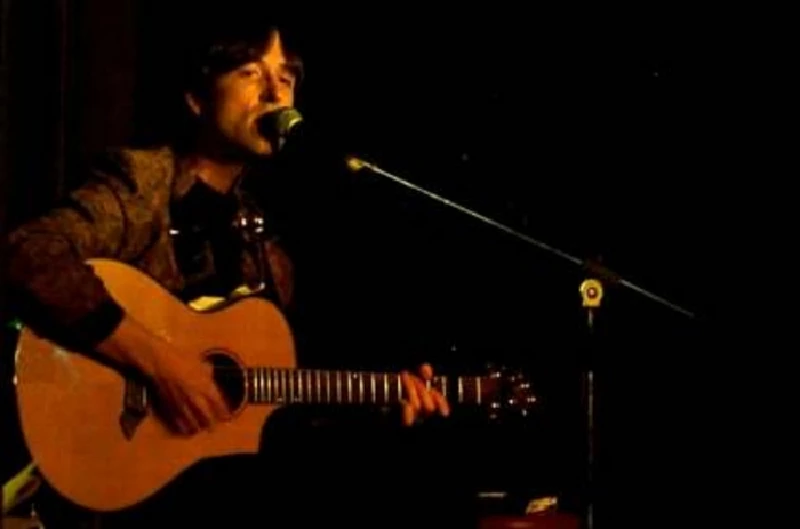
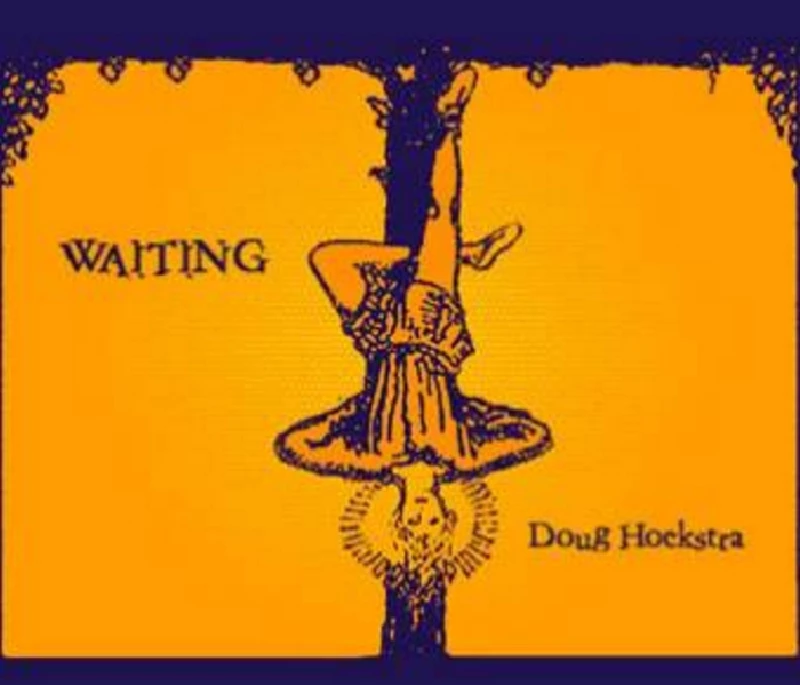
interviews |
|
Interview (2021) |
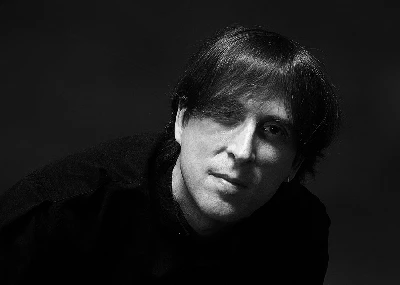
|
| Nashville-based writer and musician Doug Hoekstra talks to John Clarkson about 'The Day Deserved', his first album in over a decade, and his return to music. |
| Interview (2002) |
profiles |
|
Ten Seconds In Between (2021) |
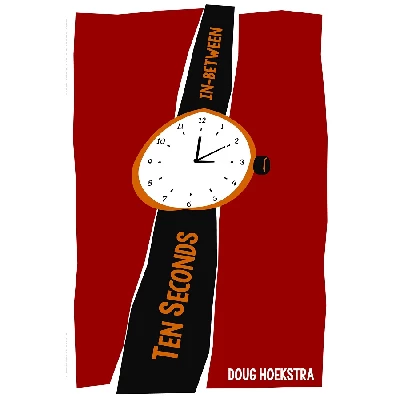
|
| John Clarkson examines Nashville-based singer-songwriter and author Doug Hoekstra's haunting new collection of short stories. |
| 'Wintertime' Video Premiere (2021) |
| Unopened (2019) |
features |
|
The Image That Made Me Weep (2020) |
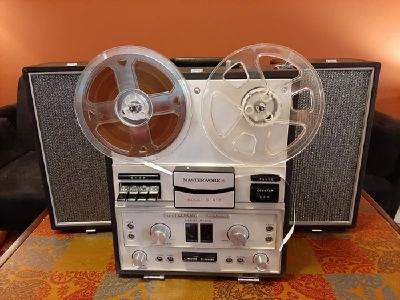
|
| Nashville-based musician and writer Doug Hoekstra in 'The Image That Made Me Weep' writes of the redisoovery of a reel to reel tape recorder on which he made much of his early music in his late father's house |
| Six Songs/Su Casa, Mi Casa : the Official Live Boo (2005) |
reviews |
|
Blooming Roses (2008) |
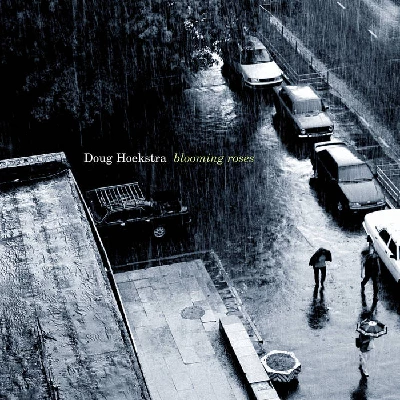
|
| Superb and ultimately hopeful eighth album from Nashville-based singer-songwriter Doug Hoekstra |
| Waiting (2004) |
| The Past is Never Past (2001) |
| Around The Margins (2001) |
most viewed articles
current edition
Screamin' Cheetah Wheelies - Sala Apolo, Barcelona, 29/11/2023 and La Paqui, Madrid, 30/11/2023Anthony Phillips - Interview
Difford and Tilbrook - Difford and Tilbrook
Rain Parade - Interview
Oldfield Youth Club - Interview
Autumn 1904 - Interview
Shaw's Trailer Park - Interview
Cafe No. 9, Sheffield and Grass Roots Venues - Comment
Pete Berwick - ‘Too Wild to Tame’: The story of the Boyzz:
Chris Hludzik - Vinyl Stories
previous editions
Microdisney - The Clock Comes Down the StairsWorld Party - Interview
Michael Lindsay Hogg - Interview
Heavenly - P.U.N.K. Girl EP
Ain't That Always The Way - Alan Horne After The Sound of Young Scotland 2
World Party - Interview with Karl Wallinger
Joy Division - The Image That Made Me Weep
Steve Harley - Interview
Dwina Gibb - Interview
Prisoners - Interview
most viewed reviews
current edition
Marika Hackman - Big SighSerious Sam Barrett - A Drop of the Morning Dew
Rod Stewart and Jools Holland - Swing Fever
Ian M Bailey - We Live in Strange Times
Loves - True Love: The Most of The Loves
Paul McCartney and Wings - Band on the Run
Autumn 1904 - Tales of Innocence
Roberta Flack - Lost Takes
Banter - Heroes
Posey Hill - No Clear Place to Fall
Pennyblackmusic Regular Contributors
Adrian Janes
Amanda J. Window
Andrew Twambley
Anthony Dhanendran
Benjamin Howarth
Cila Warncke
Daniel Cressey
Darren Aston
Dastardly
Dave Goodwin
Denzil Watson
Dominic B. Simpson
Eoghan Lyng
Fiona Hutchings
Harry Sherriff
Helen Tipping
Jamie Rowland
John Clarkson
Julie Cruickshank
Kimberly Bright
Lisa Torem
Maarten Schiethart